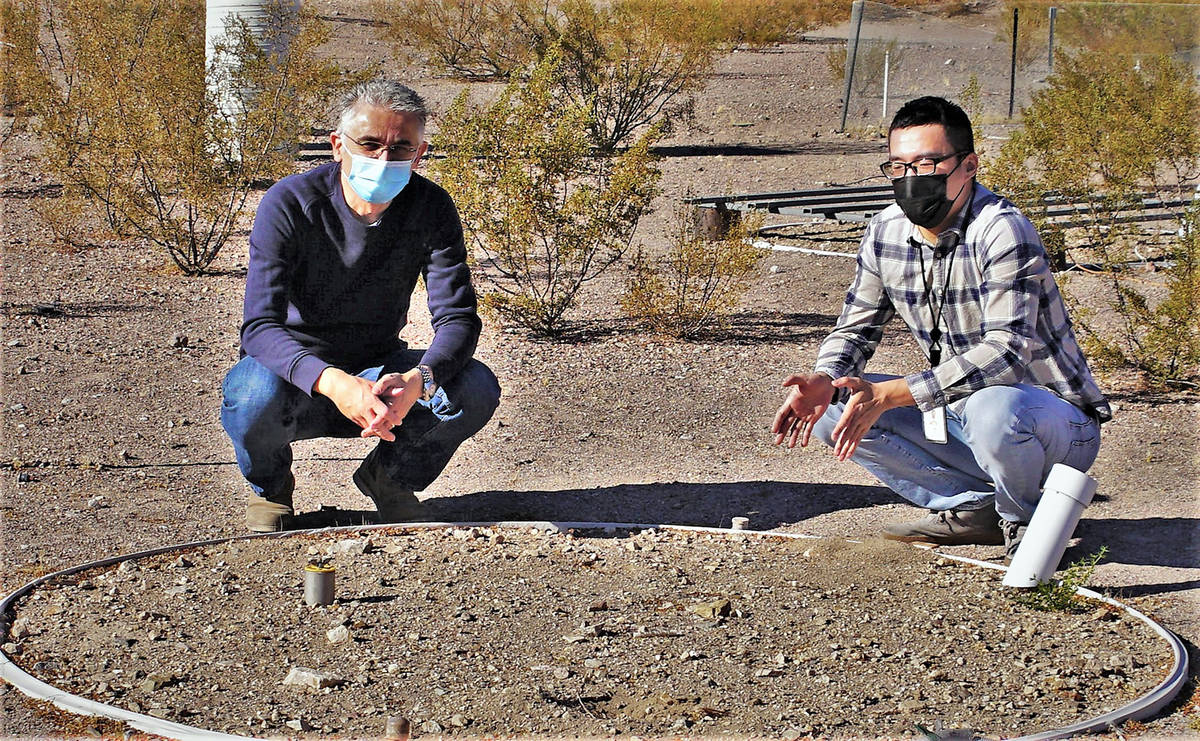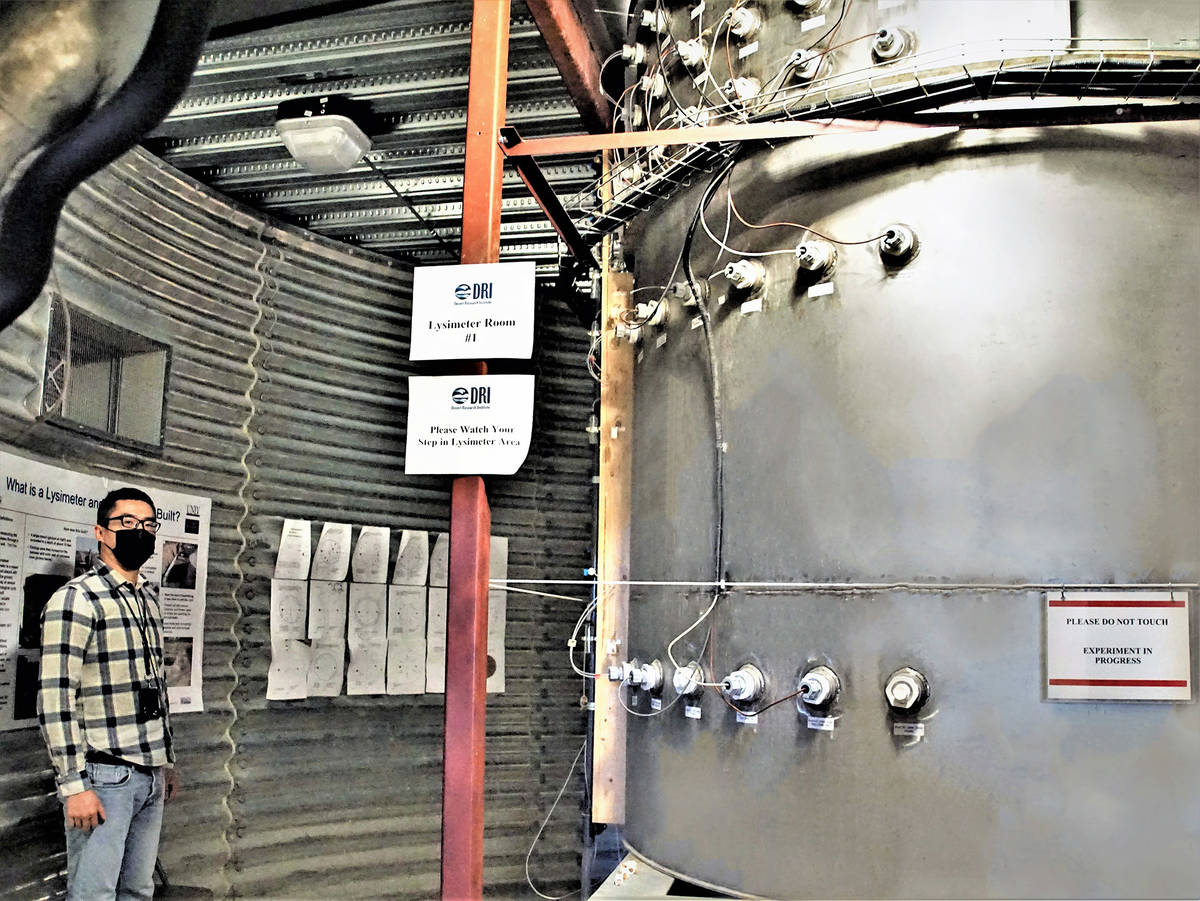Study: Solar panels improve desert life
The solar panels in the Eldorado Valley outside of Boulder City could help desert plants and wildlife because of how they direct rainwater into the ground, according to researchers with Las Vegas’ Desert Research Institute.
“It’s better for plants and animals because more of the water stays here,” said Markus Berli, Ph.D.
He and Yuan Luo, Ph.D., scientists with the institute, became interested in how the presence of thousands of solar panels impact desert hydrology and recently published results of their study, which began in spring 2008 and is now in its 13th year. Hydrology is the scientific field dealing with the properties of the earth’s water and its movement in relation to land.
Through their research, Luo and Berli looked at how solar panels change the way rainwater hits the ground, where all that water goes, how much of it stays in the soil and how deep it goes.
“To understand how solar panels impact desert hydrology, we basically needed a better understanding of how desert soils function hydraulically,” explained Luo.
Berli said they found that when rainwater hits the panels and goes into the ground it causes a higher concentration of it because it goes deeper into the soil and stays there longer.
“There is very little rain out here, so it all counts,” he said.
Luo said it also allows more vegetation to grow along the drip lines.
Berli said because there can be a lot of water in a short amount of time, however, it could lead to erosion.
Knowing how this rainwater moves through the desert soil from the solar panels helps with a variety of things, including soil restoration, erosion, dust management and flood risk mitigation, according to Berli.
To help them with their research, they worked with Teamrat Ghezzehei, Ph.D., of the University of California, Merced, and Zhongbo Yu, Ph.D., of the University of Hohai, China, to refine an existing computer model, HYDRUS-1D, to help see how water moves through and gets stored in dry soils.
Luo analyzed data from DRI’s SEPHAS lysimeter facility in Boulder City to improve the usefulness of the model.
“The SEPHAS lysimeters provided us with really good data to help understand the phenomenon of how water moves through dry soils as a result of rainfall and evaporation,” he said.
Lysimeters are measuring devices and DRI’s facility uses large underground, soil-filled steel tanks installed over truck scales that allow researchers to study the water gains and losses in a soil column under controlled conditions.
“The model is very technical, but all of this technical stuff is just a mathematical way to describe how rainwater moves in the soil once the water hits the soil,” Berli added. “In the bigger picture, this study was motivated by the very practical question of what happens to rainwater when falling on solar farms with thousands and thousands of solar panels in the desert – but to answer questions like that, sometimes you have to dig deep and answer more fundamental questions first.”
Luo and Berli are now doing more tests to see if this research can be expanded.
Luo is lead author of the Vadose Zone Journal article written about this research. It can be found here, https://acsess.onlinelibrary.wiley.com/doi/10.1002/vzj2.20081.
Currently, there are 10 solar projects that have been started in the Eldorado Valley, according to city documents. They encompass 9,300 acres of land and include solar panels, battery storage and other elements of solar energy production.
Contact reporter Celia Shortt Goodyear at cgoodyear@bouldercityreview.com or at 702-586-9401. Follow her on Twitter @csgoodyear.

















